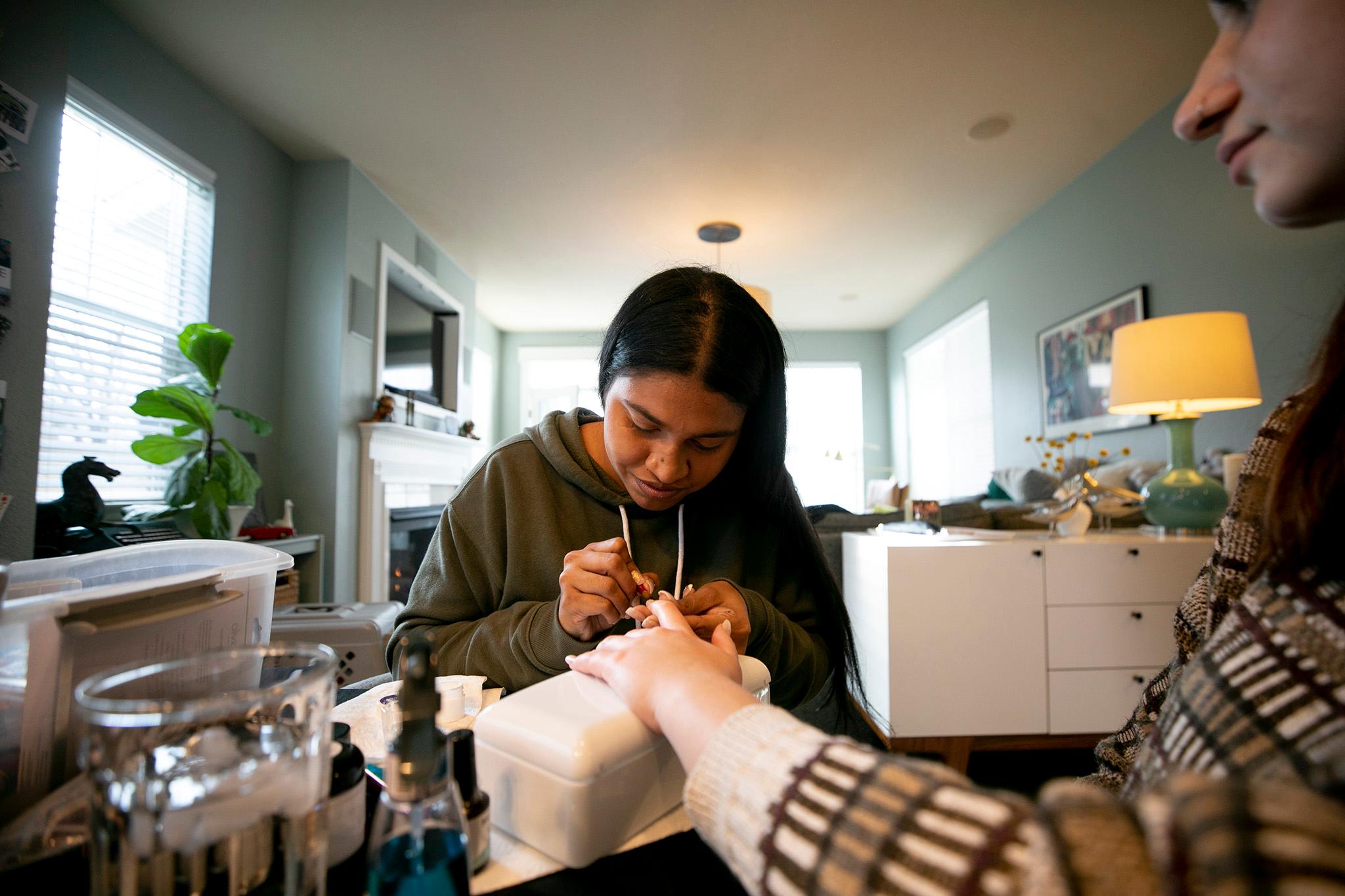Johanna Ladis' Central Park home filled with the smell of acetone as a manicure party got into full swing. But this wasn't just a fun afternoon in.
Ladis, her family and her neighbors were on a mission: Put some migrant mothers to work, help them make some cash and hopefully put them on a path to stability for themselves in the long term. These two women were asking $45 per pair of hands. It wasn't much, but it was a start.
"I'm doing it because I like it, I'm passionate about it and to generate money to rent an apartment," Fraiberlys Nazareth Gonzalez said as she applied glitter to the tips of Ladis' daughter's fingers. "I thank the people who have helped us."
Someday, she said, once she's moved out of the city-run motel where she's been staying with her two children, she dreams of opening her own salon.
Scenes like this have played out across Denver over the last few months, as locals - mostly women - have responded to help the thousands of asylum seekers who continue to arrive here from border cities.
These networks of support sprung up last autumn, when migrant arrivals reached unprecedented levels and mothers with kids began appearing in tents on sidewalks. While Mayor Mike Johnston went to the White House to ask for federal help, thousands of residents organized themselves on Facebook, directing aid where they thought the city had come up short.
Now, members of these groups are hoping officials will use the power they've built, as everyone struggles to keep people from sheltering outside and as more arrive each week.
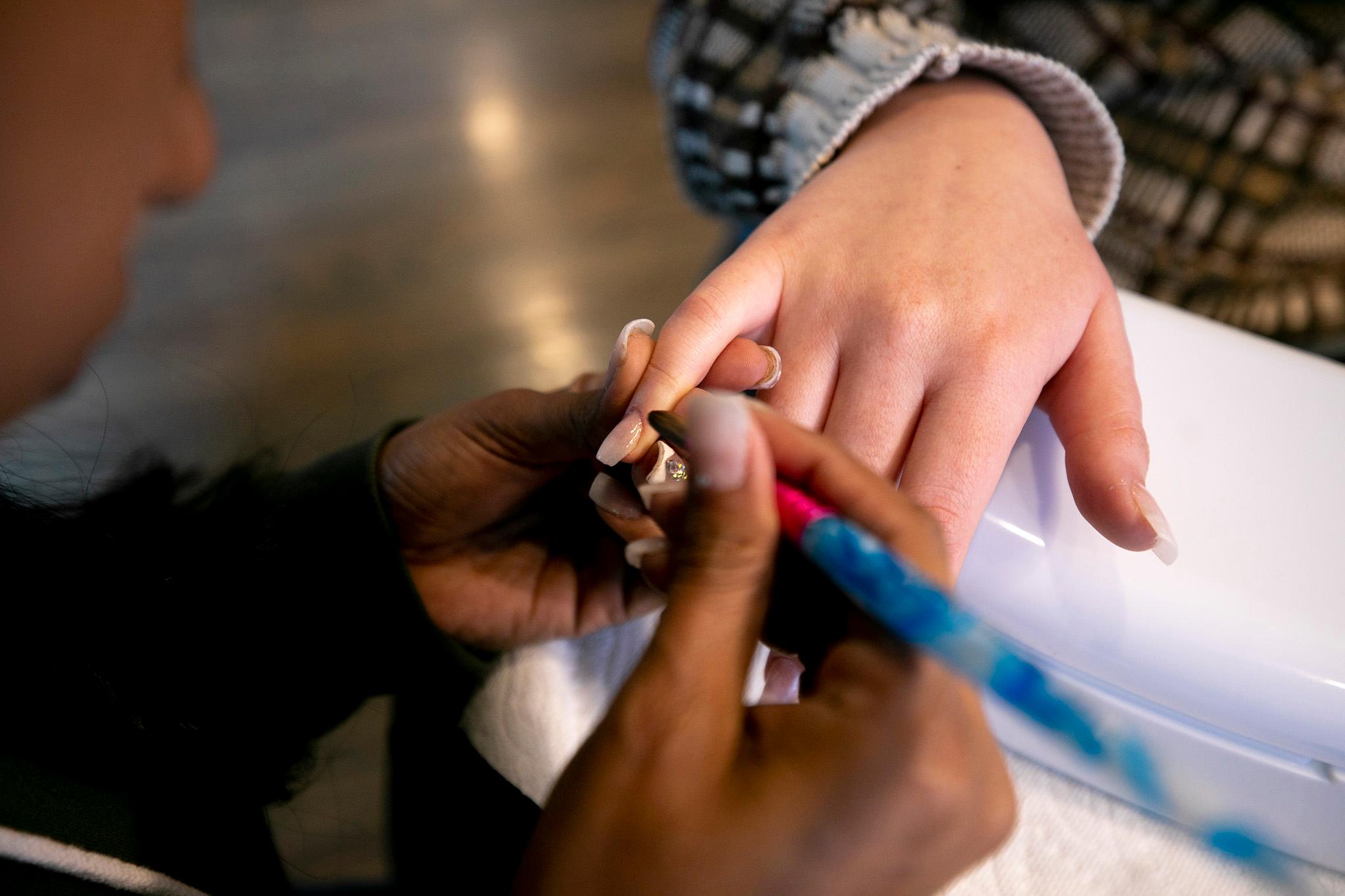
Many of these group members had little experience with the nation's immigration system. Now, they can't ignore the humanitarian crisis playing out on city streets.
Denver operates a handful of hotels where migrants can stay for a few weeks when they get to town, but officials have repeated they don't have enough room for everyone who needs somewhere safe to sleep. Time limits are one way to make room for new arrivals.
Since few people have gotten work authorization, and the stability that comes with it, many people leaving these hotels have nowhere else to land except in tents outside. Before Thanksgiving, that included families with children. Their presence on the street, especially during an October snowstorm, struck a nerve with local moms. One was Andrea Ryall, who joined the "Highlands Moms & Neighbors - Venezuelan Migrant Support" group on Facebook.
"We're in straight crisis triage mode," she told us in early November, as members of that group coordinated deliveries of tents, shoes and diapers to a growing encampment outside a Zuni Street motel. "We have 100 families in my WhatsApp that I am directly in contact with, who I'm bringing shoes to, and when their kids are sick, medicine. They need it. I'm taking moms to Denver Health to get appointments for ultrasounds and to check on their babies, and bringing men to my neighborhood to rake leaves and organizing community events."
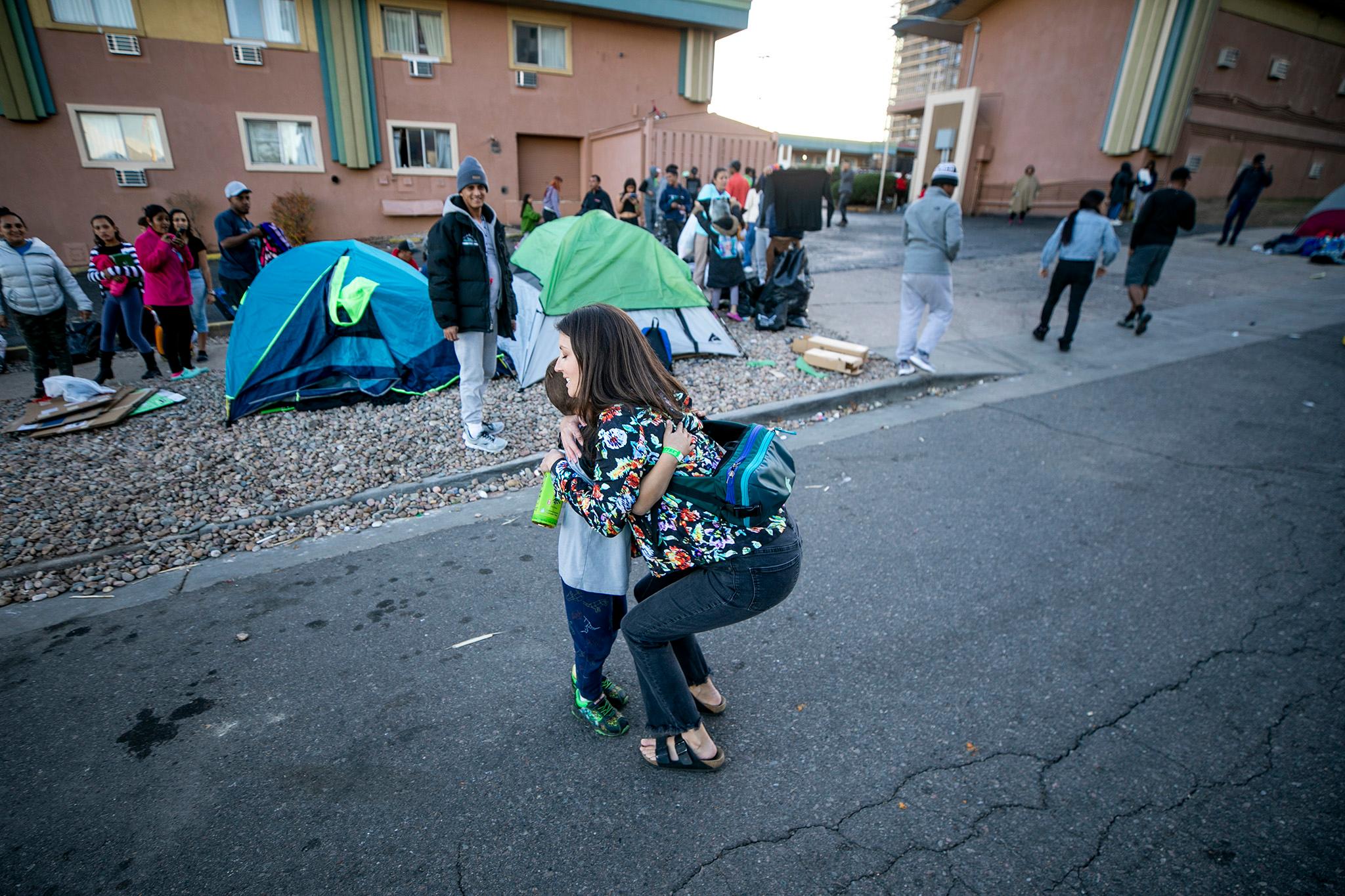
By mid-November, the group had grown to over 1,000 people. They posted calls to action and asks for supplies; they filled spreadsheets with sign-ups for meal trains and donations; they built a supply closet at a Federal Boulevard church, then invited families inside to find boots and coats and whatever else they needed. As they worked together, their calls for policy changes grew louder.
"Something has to change on a higher level for there really not to be kids outside, dead in the streets come, January and February," Ryall told us, on a day that Mayor Mike Johnston visited migrants who'd been asked to leave shelters, trying to get some enrolled for work authorization.
By Nov. 17, the city announced they'd changed their hotel rules, at least temporarily: they'd let families with kids stay inside, regardless how long they'd been in town.
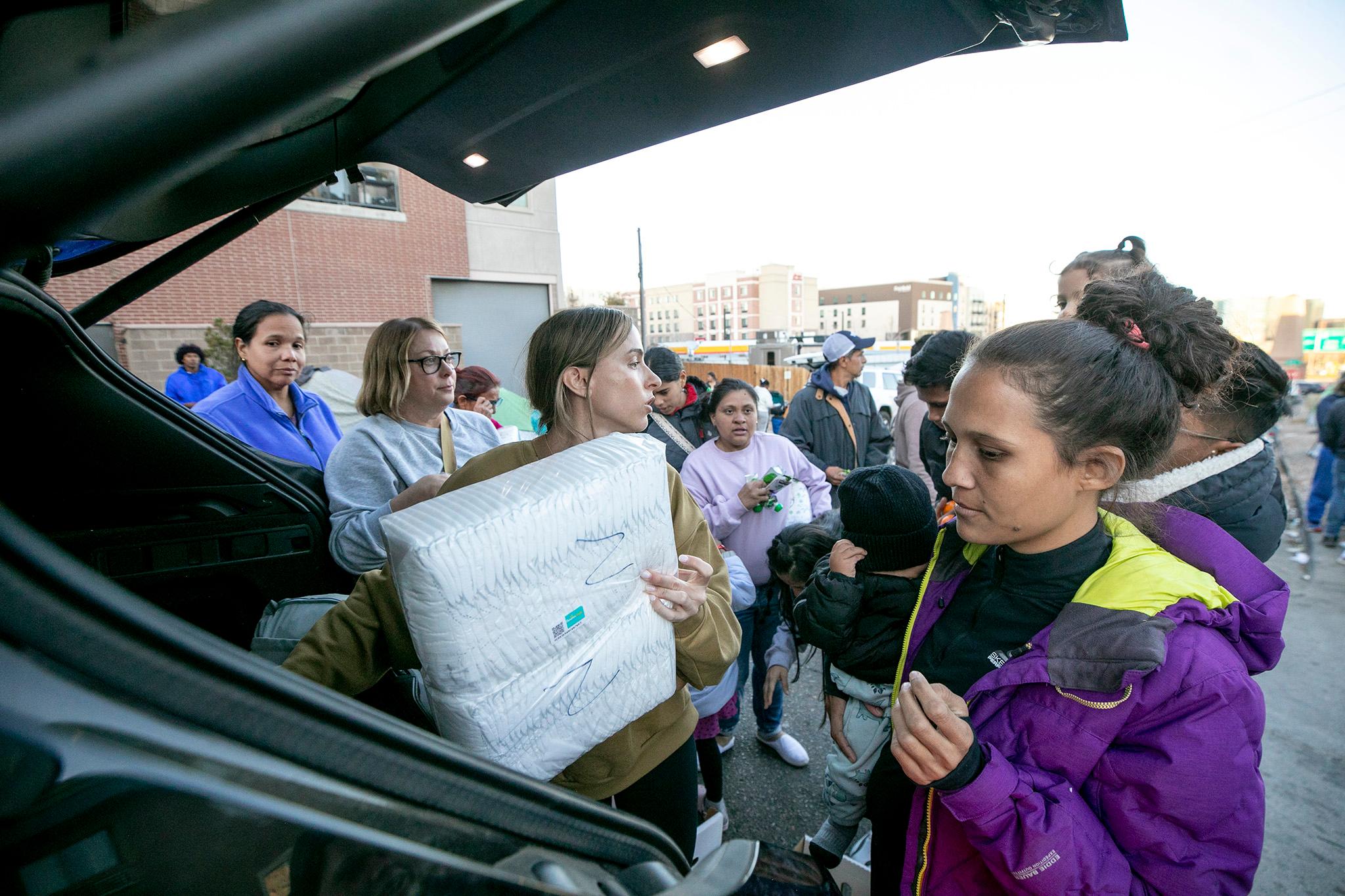
Today, the Highlands Facebook group boasts almost 5,000 members, and similar groups have sprung up for other neighborhoods. Ladis and her neighbors latched on to one serving Central Park and Park Hill. Someone formed another to support a north Denver motel sheltering several hundred people. Two others focus on camps, further from the city's hotels, where people have found places for their tents.
"There's new people joining the fight every day," Ryall told us last week. "One of my very best girlfriends just finally, after all this time, went and fed a meal down at Sixth and Federal yesterday, and then was messaging me frantically all day about how to help a family she met. And it's like, I know that moment she's in, where all of a sudden it's all the desperation and you want to help. But then I'm also in the advocacy chat where we're trying to really take a zoomed-out view."
But keeping an eye on the big picture can be tricky in this work. A lot of residents have decided to focus on smaller milestones instead.
Ryall's been glued to this crisis for a few months, organizing while she stays on top of all the pressures of normal life. The work has left her feeling burned out.
"It's definitely a predictable outcome when you take primarily moms and a lot of neighbors who have limited background in this kind of a crisis, which truly is everyone," she said. "The cries of the people over and over, every day for two months, and having real limited boundaries on when is appropriate to be helping or reacting. It's definitely come full circle on me. So I am taking quite a big step back in this moment to recharge."
Scores of new posts go up in these Facebook groups each day. Members ask for help, they make alerts about arising needs, they share success stories.
"Amazing beautiful week, the Venezuelan family moved in!" someone wrote this week in the Central Park group. "Kids are enrolled in school! Meet the newest East High School Angels!"
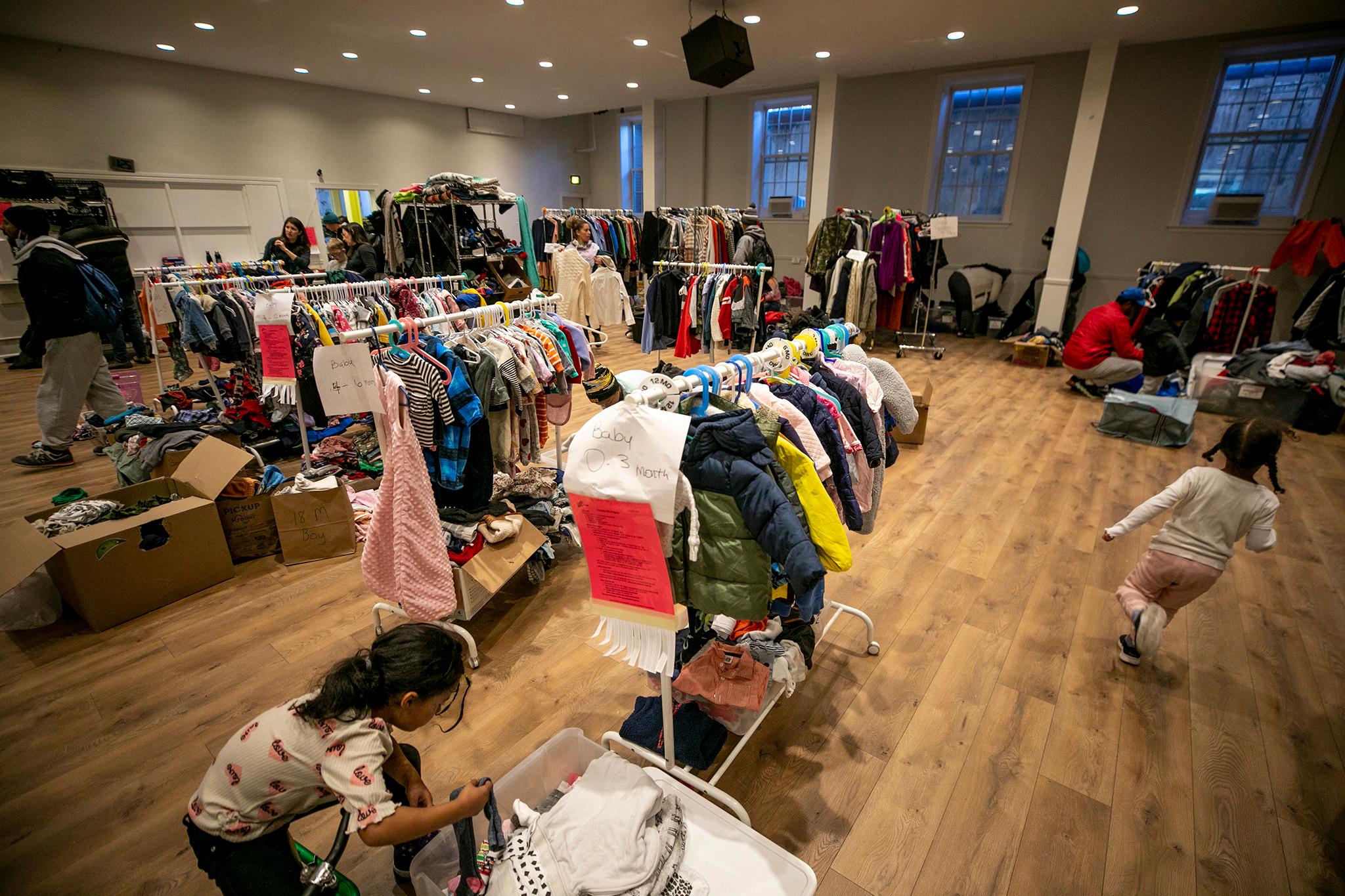
But things are moving quickly, and there are so many people clamoring for help. And the bigger context - America's immigration system, with politics and the rancor that surrounds it all - can make real impact seem fleeting.
To that end, a lot of volunteers in these groups have zeroed in on helping individual families, like Ladis and her small pod of neighbors and friends. Even that focused effort can feel futile.
"It's five to six families that have been supported by two to three families, almost full-time," Ladis said. "There's success there, but it's not sustainable. And it's only a small percentage of the 35,000 migrants that have come to our city this year."
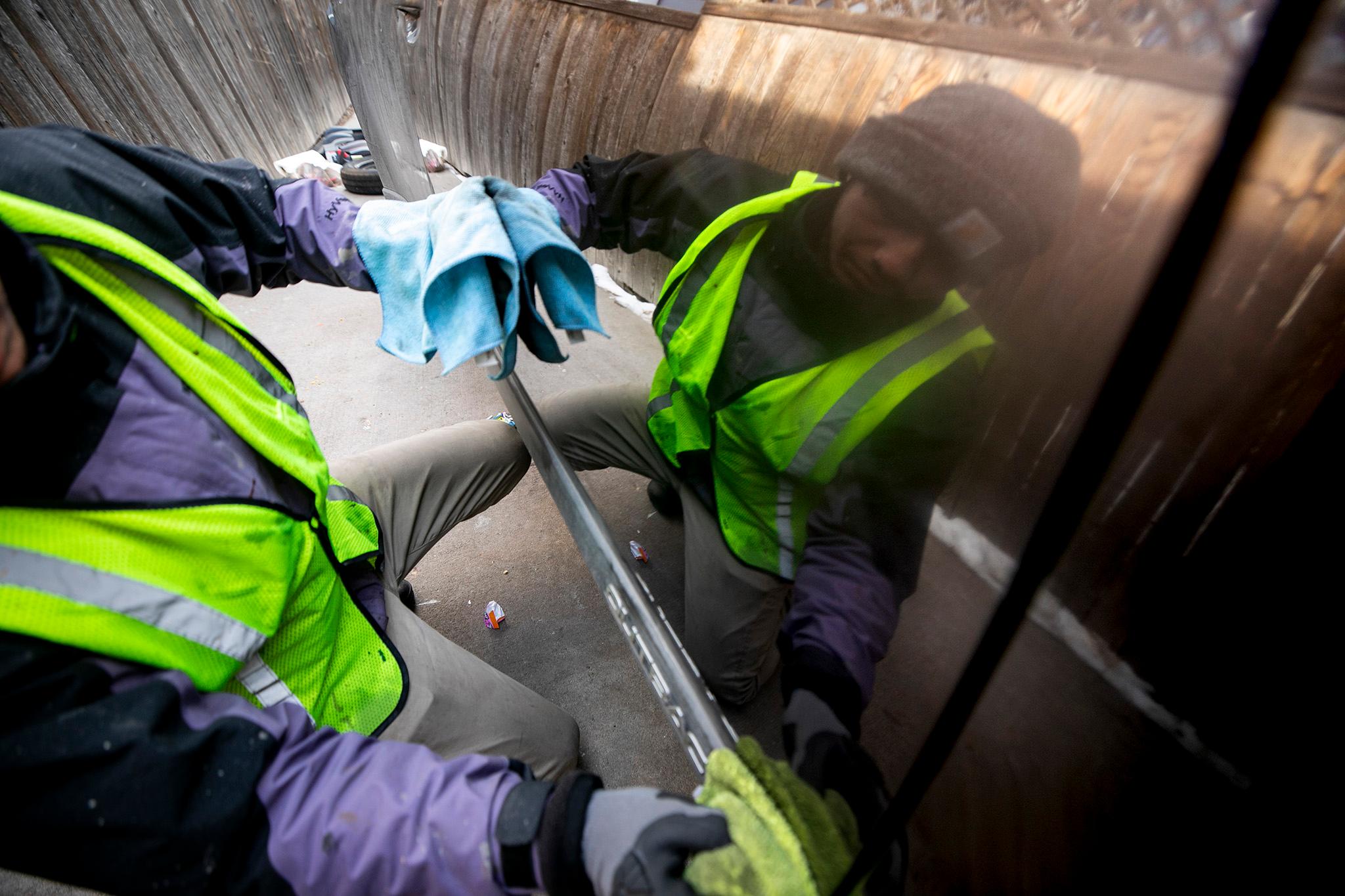
But things have been OK on a day-to-day basis. Her neighbor, Darrah Moros, has been acting as a "general contractor" for a group of Venezuelan men, scouring Facebook for odd jobs, scheduling them for work, driving them to gigs and making sure they get paid fairly. Stories of migrants defrauded by employers and landlords are common in these Facebook groups.
"We never know what each day is going to bring. And I think that's part of the fun for us," Moros said. "They've been so open to working and the community has been so responsive to the job inquiries that we've put out. Everything's been on Facebook in just the two neighborhoods, Park Hill and Central Park, and every night I'm on my computer trying to piece together a schedule for the next day."
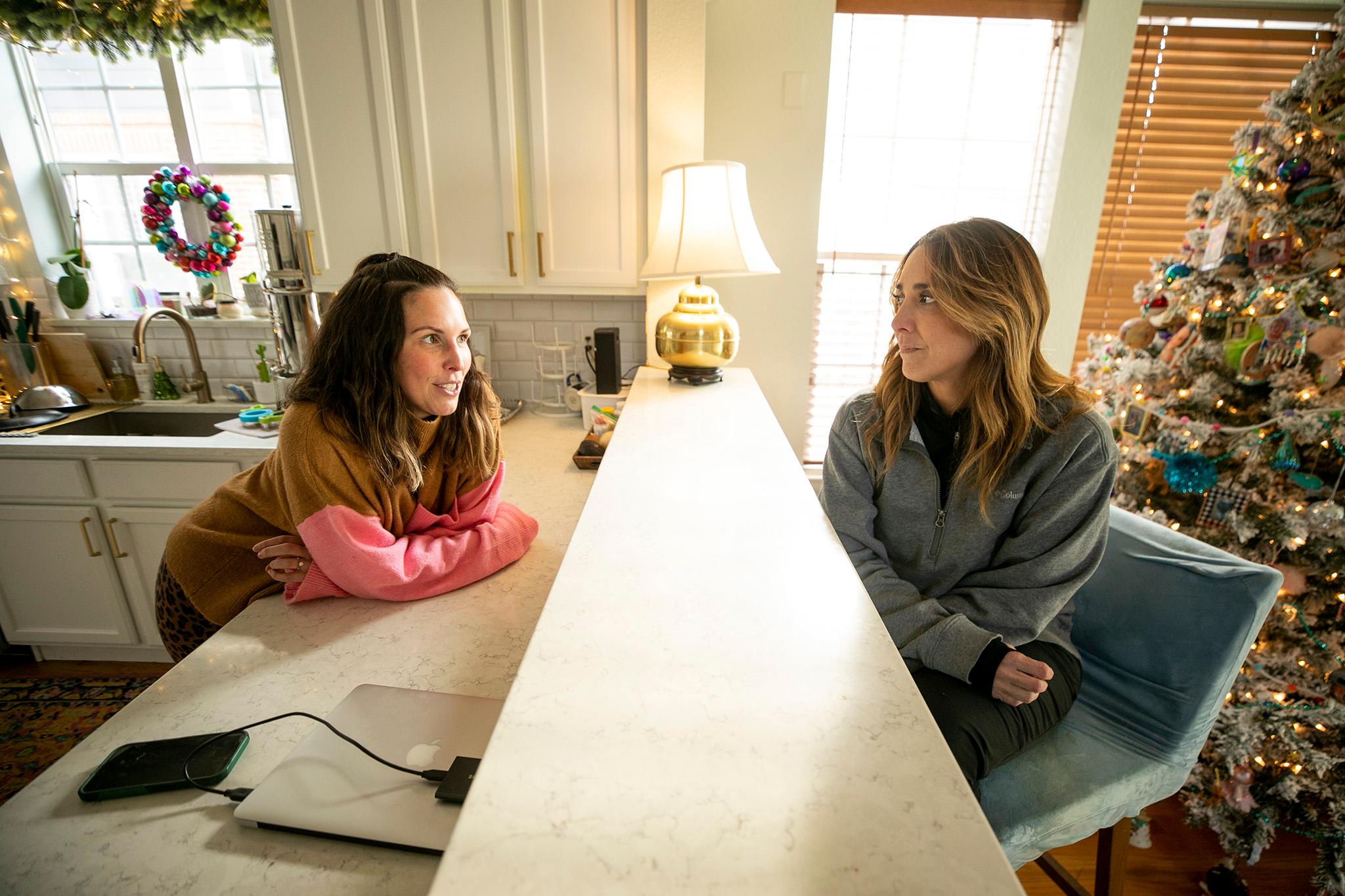
Their work has paid off. Janette Bilancieri, another member of the aid group, said they were able to help the work crew sign a lease for their own apartment.
"We got them a move-in date last Saturday," she said, beaming. "I feel great, exhausted, but probably one of the best exhaustions because it inspired me to keep going. Especially seeing that they're thriving."
These new advocates are asking Denver officials to use them more, and they feel they've made some progress.
It's been a continual topic of discussion since these networks appeared online. It seemed like an obvious ask: so many people were adding their time and energy to address this crisis while officials warned city resources were being stretched beyond their limits.
"We're primarily moms who really don't have a lot of time or energy to give, but we are finding the space for it. And so let's capitalize on that and use that," Ryall told us back in November, as she lobbied Mayor Johnston's office for a meeting. "We want to put our energy where it really matters."
Officials, like Johnston's deputy chief of staff Evan Dreyer, told us the city does want to work with these groups. But a full-throated partnership hasn't emerged so far.
"I think a lot of people are afraid - not afraid, but hesitant to get involved because we're just us," Ladis told us as Gonzalez worked on a set of acrylic nails. "We're not a nonprofit, we're just doing the work. And people, they want a background, they want to know what you're doing, why you're doing it. And there's not really time to do that."
While these Facebook groups are organized and moderated, they don't have true organizational structures like a nonprofit might. Members say they're aware of the risks this entails. These groups are visible, active and open, and there's a possibility that someone with nefarious intentions could find their way to their ranks.
"I think about this every day," Rachel Handler, a moderator of the Central Park group, told us. "A couple weeks ago, we started to where we have to approve every post, and we only approved members who seem legitimate."
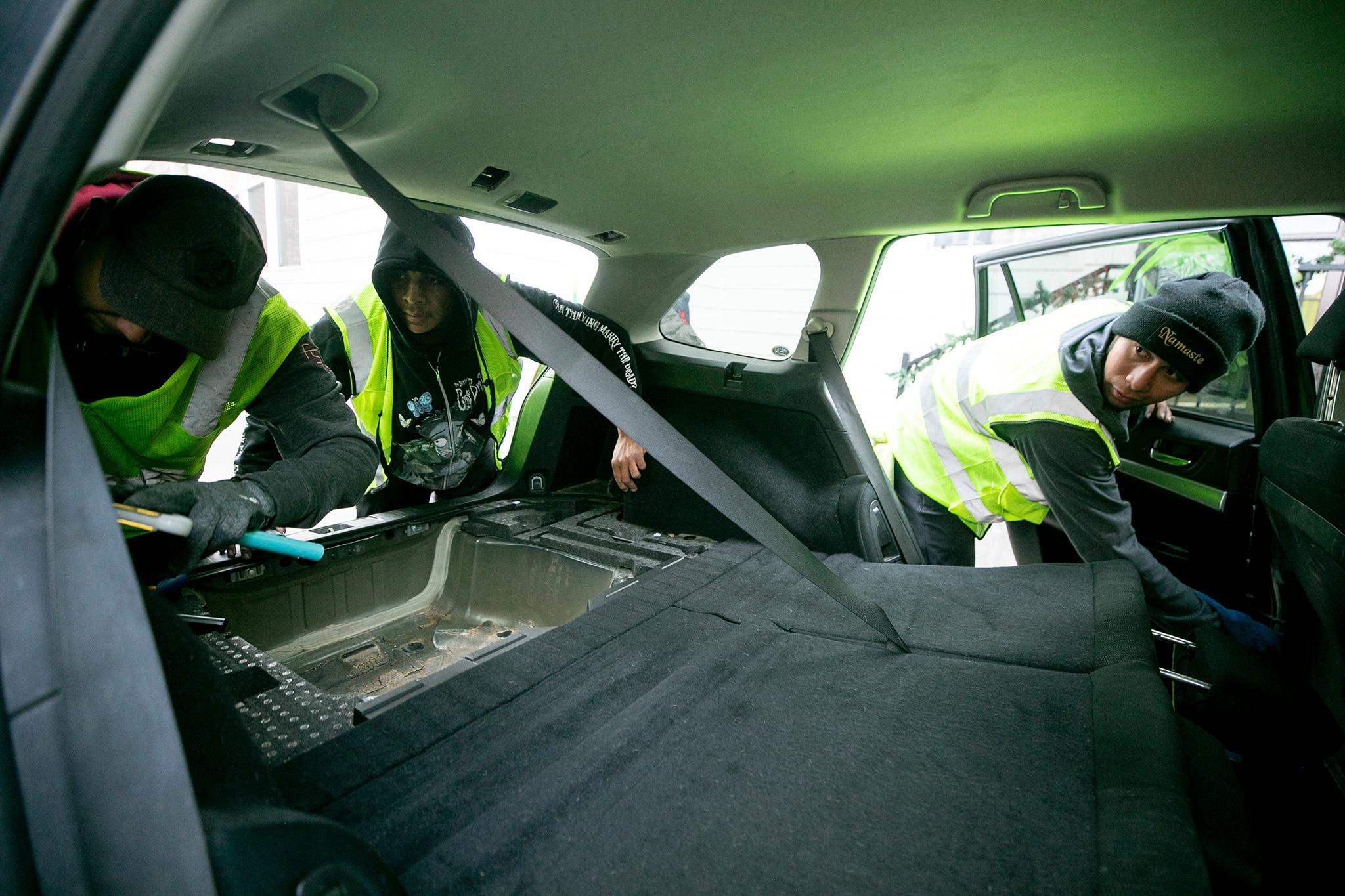
Still, Ryall said officials have taken time to meet with her group in recent weeks, in a way that makes her feel hopeful.
"There has been a lot more transparency and communication from the city over these last several weeks. And so that has, I think, alleviated some of the crisis triage mode that we were in initially," she told us.
When officials decided to allow families to stay in their motels, past regular deadlines, they initially did not extend that invitation to grandparents in those family units. Ryall said the Highlands group asked the city, specifically, to allow them to stay - and she said they listened.
We asked Dreyer, Mayor Johnston's deputy chief of staff, to confirm that. His response underscored how precarious this situation is, and suggested these networks of online moms will have even more people asking for their help before too long:
"We're grateful for the support and partnership with groups like the Highland Moms & Neighbors. We share a common goal and humanitarian values of keeping families with children together, and that includes grandparents," he wrote us. "Important to note, however, that while we have temporarily allowed families to remain in shelters indefinitely, we will be re-instituting a time limit on migrant families in shelters in the very near future as we are way beyond our capacity to accommodate so many people."

